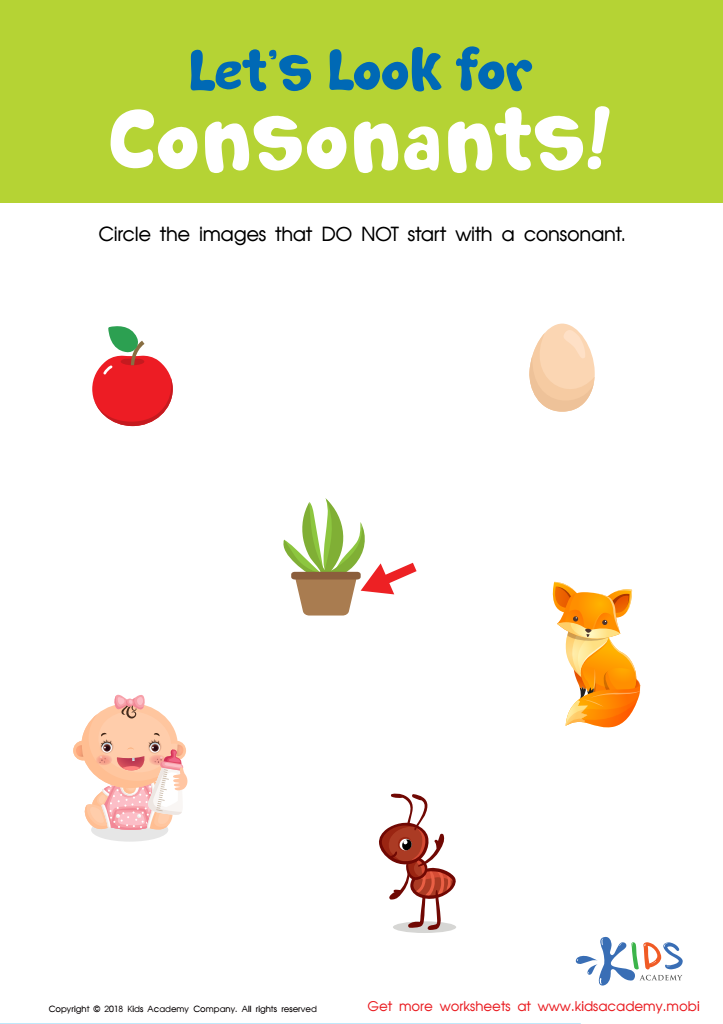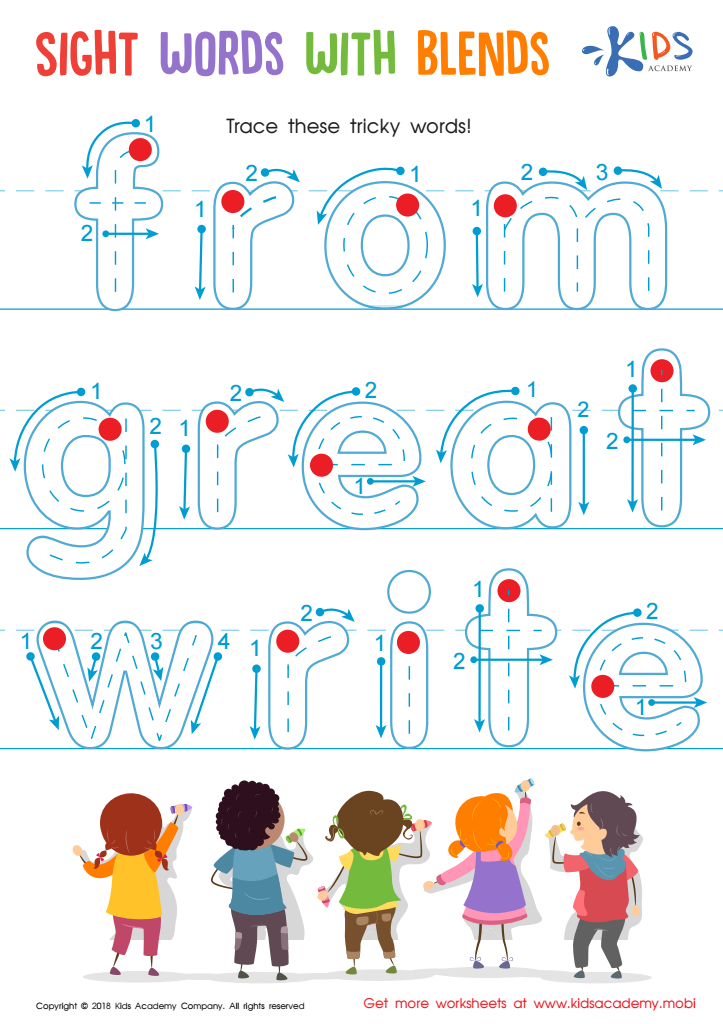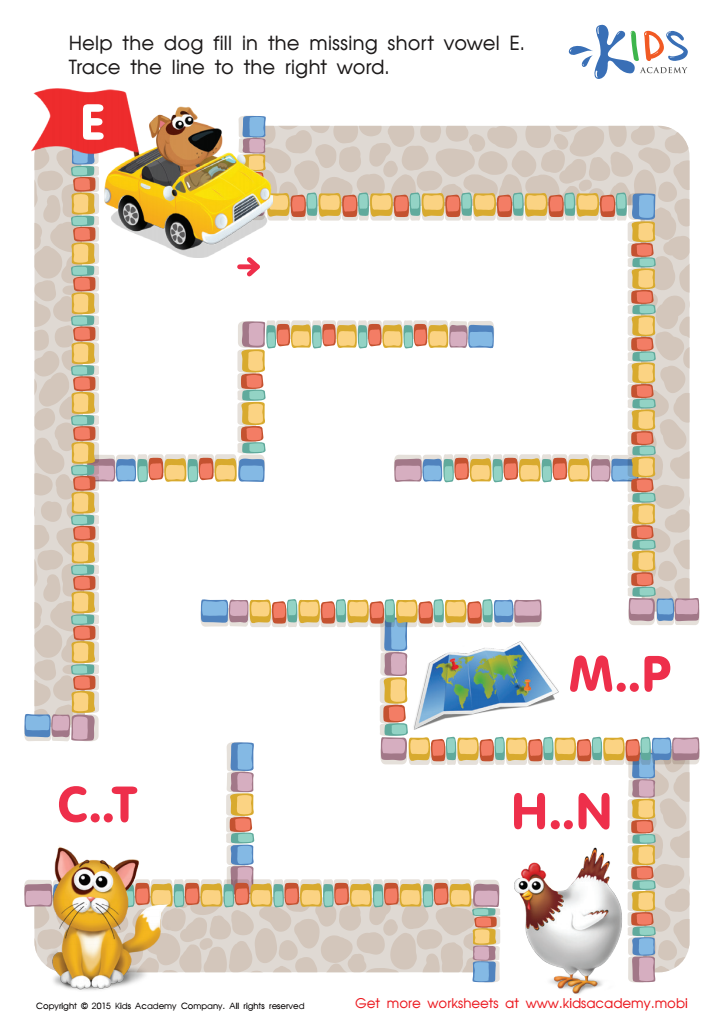Spelling practice Letter Recognition Worksheets for Ages 3-6
4 filtered results
-
From - To
Unlock your child's potential with our Spelling Practice Letter Recognition Worksheets, specially designed for ages 3-6! These engaging worksheets help young learners master the alphabet while developing essential spelling skills. With fun and colorful activities, children will enhance their letter recognition, phonics, and spelling abilities in a playful environment. Our thoughtfully crafted exercises cater to various learning styles and encourage creativity, making learning enjoyable. Whether at home or in the classroom, these worksheets provide the perfect tools for early literacy development. Download today and watch your child build a strong foundation in reading and writing with confidence!


Let's Look for Consonants Worksheet


Short Vowels /e/, /i/, and /u/ Worksheet


Sight Words with Blends Worksheet


Short Vowel Sound E Worksheet
Spelling practice and letter recognition are fundamental components of early literacy for children aged 3-6, and they lay the groundwork for successful reading and writing skills. Early mastery of letters helps children understand the relationships between sounds and their corresponding letters, which is essential for phonemic awareness. Recognizing letters and their sounds enables young learners to decode words, fostering confidence as they begin to read independently.
Furthermore, spelling practice at this developmental stage not only promotes cognitive skills but also enhances fine motor development as children learn to write letters. Engaging in early spelling activities nurtures critical thinking and problem-solving skills, as children explore how different letter combinations form words. Additionally, this practice cultivates a love for language, making it more likely for children to embrace reading as they grow.
Parents and teachers play a crucial role in supporting and encouraging these practices. By incorporating fun and engaging activities, such as games and crafts, they can create a positive learning environment. This involvement not only strengthens literacy skills but also builds essential parent-child or teacher-student bonds, fostering a spirit of collaboration that benefits the child's overall educational journey. Ultimately, prioritizing spelling and letter recognition is an investment in a child's future academic success.
 Assign to My Students
Assign to My Students














